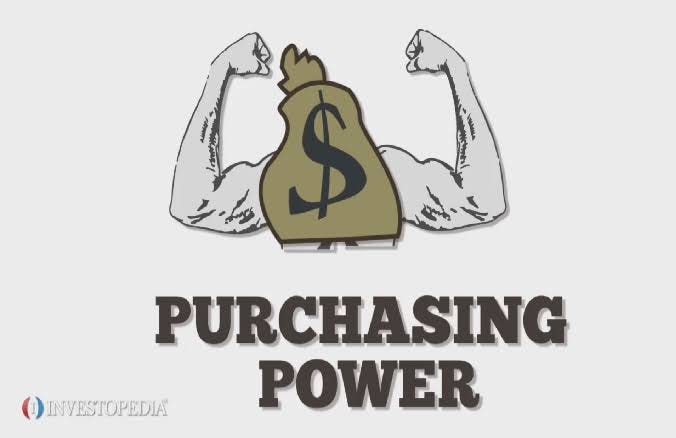Adam Smith once stated that having money gives one the ability to command labour or the product or service that labour creates. The amount of money one has determines the value, quality or quantity of what you can purchase. Purchasing power is the amount of goods or services that a unit of currency can “purchase”. So, it is how much of the goods and services the naira you have can acquire.
Over the course of seven months, the state of the economy has affected the general purchasing power of the population across the different classes and more people are being pushed towards the poverty line or below that poverty line. A report by the World Bank in the last quarter of 2022 showed that about 83 million people were below the poverty line, with an inflation rate of 16.47%. With the inflation rate at 22.41% (CBN), it can be assumed that more people fall below this line
In the general scheme of things, a country’s inflation rate affects the true value of its currency. Inflation increased the prices of goods and services, so what a unit of the naira could afford is reduced, more naira chase after few goods than before. Fluctuating exchange rates also affect the purchasing power, especially in a country like Nigeria where imports are heavily relied on for consumer products and also raw materials for production. The amount of goods or services that can be purchased by the naira decreases after a devaluation.
To Learn
A country’s inflation rate and exchange rate remain macroeconomic variables that as individuals we can not necessarily alter although they play a determining role on our purchasing power. One thing we can control to a certain degree is our flow of income and our expenditure.
In terms of the flow of income, it is advisable not to depend on one stream of income in the Nigerian economy. Skills and passions that can be converted to businesses or services that can be freelanced are options to create other streams of income. Investment is also another option, but this should only be carried out after careful research so that money is lost to the wind. It could be an investment in stock(foreign or domestic), ETFs, Mutual funds, treasury bills, etc. Another option would be to save in a foreign currency that you deem a strong currency, so during the possible periods of devaluation, your purchasing power is not reducing as well.
For the control of expenditure, budgeting and expense tracking are important mentions. Budgeting helps to track the amount spent per activity as every part of income to the last naira is accounted for in the budget, discipline is key in sticking to a budget. An expense tracker helps to note how much you spend daily, weekly or monthly. It gives opportunity for the user to enter all expenses and at the point of review, one can track the expense that receives more flow of income and if the expenditure is not a necessity, it can be stopped.




